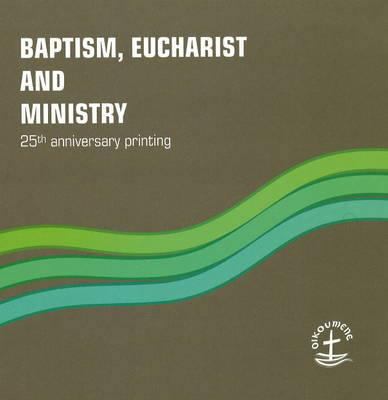BEM and Indiscriminate Baptism
There is a document called Baptism
Eucharist Ministry, that highlights best practices and common agreements
across denominations about those three subjects. I remember first reading it in
the library of St. Mark’s Retreat Centre in Audley End, UK. I was supposed to
be sorting the library or maybe setting up an upstairs worship space, but I
started reading BEM and next thing I knew I had read the whole thing. There was
one section that sort of haunts me, a section about the misuse of baptism by
folk who practice infant baptism, it reads:
“The latter must guard
themselves against the practice of apparently indiscriminate baptism and take
seriously their responsibility for the nurture of baptized children to mature
commitment to Christ.”—BEM page 5.
I think of my own entrance into
the body of Christ, was that unserious or indiscriminate? I think too of the
many baptisms I have performed where the parents and sponsors are less than
perfect church attenders, certainly inconsistent, and sometimes you get the
sense that they’d not consciously acted or reflected on their faith since they
were in Sunday School.
But then I think God does not solely, or even primarily, welcome
perfect people, consistent souls, those whose actions and reflections always
align with the Gospel. No, when God came in the flesh, he told stories of
welcoming strange folk to wedding banquets and was accused of supping with
sinners and transforming tax collectors.
That said, I do wish there was a good process of continually walking
with the baptized in their faith. Yes, we offer Sunday School, First Communion
instruction, Confirmation, and so on, but the weight of the world and concerns
for college applications and future successes, tend to crowd out the garden of
a baptized life.
As I’ll write about tomorrow, there are a lot of dynamics that have
broken up those traditional patterns the church has relied on to form the
baptized to be mature Christians. We now have to rely on atypical means to pass
on the faith, which requires creativity, flexibility, and a lot more work than
the program model of the previous generation. More importantly, we must rely on
the grace of Jesus Christ, which requires ongoing faith—trusting that God will
guide the Church as we pass on the faith.



Comments
Post a Comment